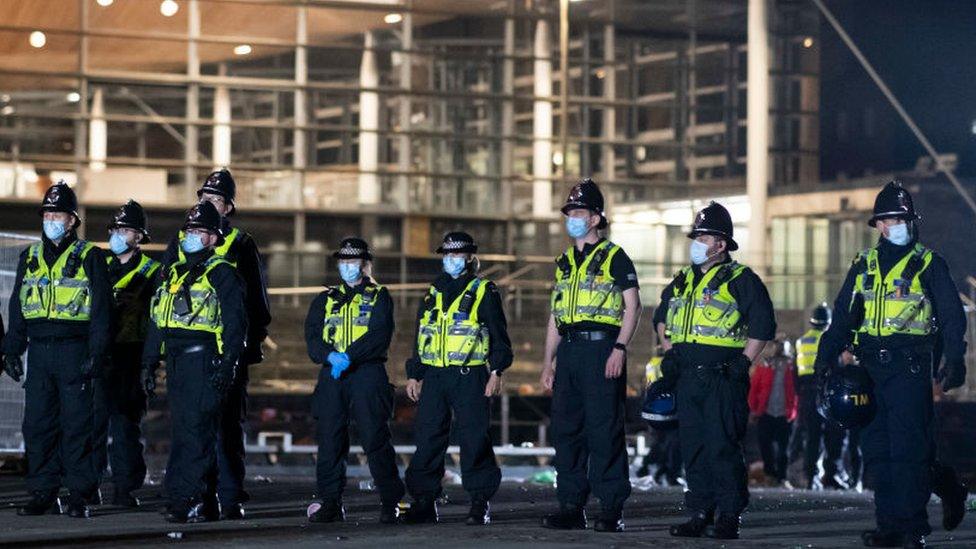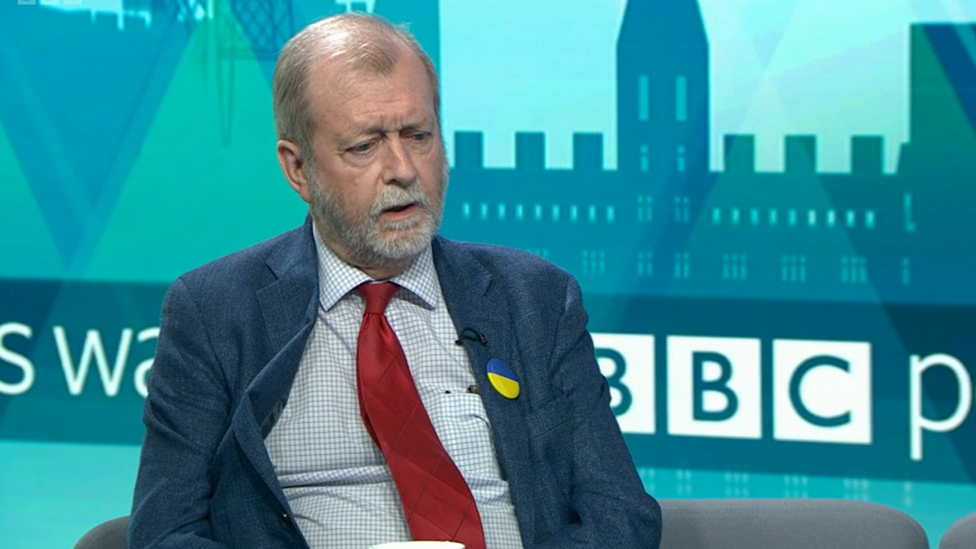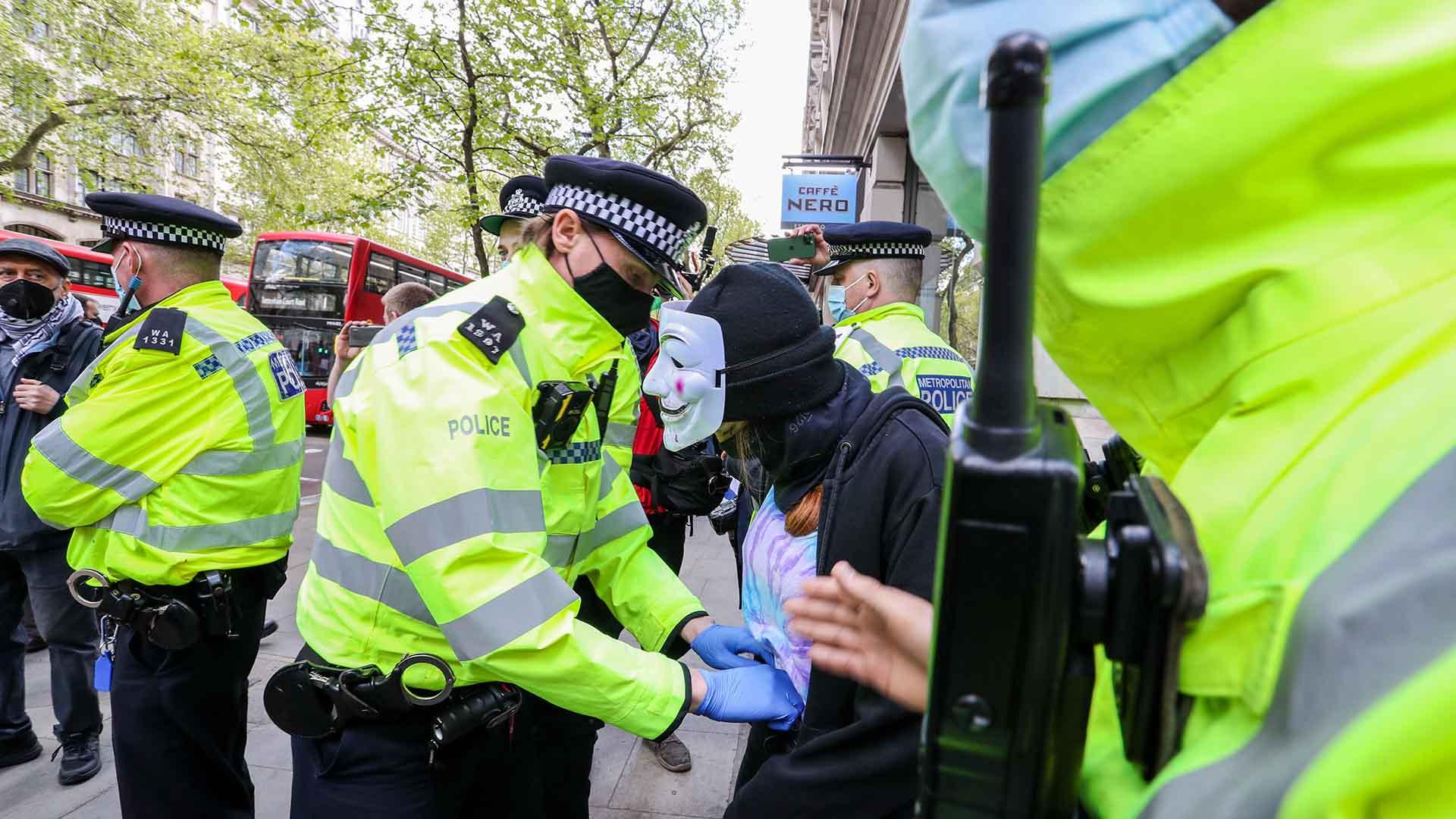Wales: Police stop and search powers not used 'recklessly'
- Published

Police in Cardiff were given temporary extra search powers in January following violent incidents
Police stop and search powers are not used "recklessly" but it's "unfortunate" data shows black and Asian people are disproportionately targeted, according to a commissioner.
Gwent Police and Crime Commissioner Jeff Cuthbert said such powers were "closely controlled".
A youth worker said it was important "not to alienate the same young people we're trying to work with".
Cardiff University research, external found black people were most likely to be stopped.
According to the data for 2020/21, 56 out of every 1,000 black people were stopped and searched in Wales, compared to 28 per 1,000 people from a mixed ethnic background, 16 per 1,000 Asian people, and eight per 1,000 white people.
In Wales, stop and search is the power given to police to search an individual or vehicle if they have "reasonable grounds" to suspect the person is carrying, for example, illegal drugs or a weapon.
Section 60 orders allow stop and searches to be carried out without requiring "reasonable grounds".
Speaking on the BBC Politics Wales programme Mr Cuthbert said: "We know it's a controversial area but very often some of the most difficultly affected areas are very supportive of stop and search and there's meant to be very strict criteria around the decision of the police officer to actually stop someone and search them."

Jeff Cuthbert: An independent advisory group "helps to scrutinise the way in which stop and search is carried out"
Asked about the Cardiff University data showing black and Asian people were disproportionately affected, Mr Cuthbert said: "Yes, that's unfortunate and we work very closely with those communities.
"We have an independent advisory group which helps to scrutinise the way in which stop and search is carried out.
"So, it's not done recklessly, it's closely controlled, and where there is a view that it's disproportionate, well, we'll look at that very closely."
Ali Abdi, a community and youth worker in Cardiff, said the issue was "really difficult" because if "knife crime is an issue in certain communities then to obviously identify those carrying them you need to carry out stop and search".
"But we've got be careful not to alienate the same young people we're trying to work with here," he added.
Mr Cuthbert said stop and search was "just one tactic in the toolbox of policing" to deal with knife crime which, he added, was a "rare event in Wales" so he did not "want people to feel alarmed".
But he said police officers were "not at all complacent" as the number of knife crime incidents has increased in recent years.
His comments come after two men were been found guilty of the murder of Ryan O'Connor, 26, who was stabbed to death and robbed of his designer Gucci bag in Newport.
Mr Cuthbert said the reality was that "less than 1% of young people in Wales actually carry knives" but that people were "more likely to be a victim of knife crime if you're carrying a knife yourself".
Mr Abdi said: "We have some really positive interventions through youth work, youth engagement, mentoring, supporting young people in to various activities that keep them occupied.
"We need to prioritise youth services. We have definitely seen a decade of cuts.
"So, where the education and training and intervention would have taken place...in these safe places where young people could've come and hung out are decimated in some communities," he added.
- Published17 January 2022

- Published30 October 2023

- Published17 November 2019
